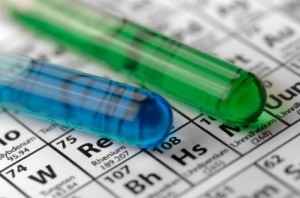 February is National Cancer Prevention Month and while most everyone focuses on diet, exercise, and quitting smoking as the core ways to prevent cancer – they’re forgetting another pillar of prevention. Reducing exposure to carcinogens in our everyday environments.
February is National Cancer Prevention Month and while most everyone focuses on diet, exercise, and quitting smoking as the core ways to prevent cancer – they’re forgetting another pillar of prevention. Reducing exposure to carcinogens in our everyday environments.
Hundreds of carcinogenic chemicals have been identified and, unfortunately, they’re quite common in our air, water, food, and everyday products. Here are some easy ways you can reduce your exposure to them.
1. Purge Plastics. Reduce exposure to carcinogens in plastics used for storing and serving food. Avoid microwaving food in plastic or putting plastics in the dishwasher, because heat may cause chemicals to leach out. And opt for safer plastics – those marked (usually at the bottom of a container) 1, 2, 4 or 5. The plastics to avoid are those numbered 3, 6 and 7 (unless they are also marked ‘BPA-free’).”
2. Eat Healthy. Opt for more organic, whole foods. Ease up on animal fats. And, start reading labels. You are what you eat!
3. Manage Pests Safely. Instead of using toxic pesticides, prevent pests by keeping a clean home. Prevent weeds by using mulch and maintaining a healthy lawn. If you do have a problem, opt for non-toxic methods before reaching for chemicals.
4. Detoxify Your Beauty Routine. Personal care products contain a laundry list of suspect chemicals. Reduce how much you use and to use Skin Deep to find the safest products. You can also print the Healthy Child Pocket Guide to help you on the go.
5. Clean Without Toxic Chemicals. Use gentle castille soap and water – these have been shown to keep surfaces as free of bacteria as antibacterial soaps do. In fact, antibacterial soaps and disposable wipes have not proven any more effective than regular soap in preventing infections among average consumers, but raise significant concerns about developing resistant bacteria. Opt for simple kitchen ingredients for basic cleaning, like vinegar, lemon juice, and baking soda – or use natural, non-toxic cleaners instead.
Learn more about the wide variety of carcinogenic chemicals and how you can reduce your exposure:
US National Institutes of Health’s 11th Report on Carcinogens
Breast Cancer Fund’s Prevention Starts Here Chemical Fact Sheets
Read more: http://healthychild.org/blog/comments/quick_tips_for_national_cancer_prevention_month/#ixzz0fpwEOxxX
Thank you for this. I had no idea that February was National Cancer Prevention Month. Ever since my husband had cancer in 2006, I have been constantly seeking ways to change our lives in order to lessen risk of cancer, particularly for our children. It scares me to know that 1 in 2 men and 1 in 3 women will have cancer at some point in their lives. These are some important steps to take for our, and our children’s, health.